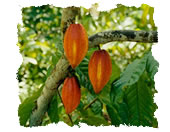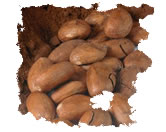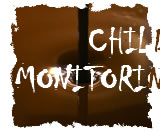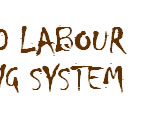CHALLENGES OF THE COCOA ECONOMY IN COTE D'IVOIRE
|
Côte d'Ivoire, a country located in West Africa, with 16,000.000 (General census of population and housing, 1998) inhabitants, is the world cocoa producer of cocoa beans with an average annual production of 1,200,000 tons, i.e., 41% of the world supply. On the national macro-economic aspect, the level of production reached has brought approximately 40% of export revenues, and contributes for 10% of the gross domestic production. On the social aspect, 600,000 farmers are working helping approximately 6 million of persons living on cocoa revenues .
|
| |
It is a strong indication that Côte d'Ivoire has an important place in the international market of cocoa, and also that cocoa culture represents is significant for its economy. The combination of these two major points are very crucial in the analysis and management of strategic challenges tied with the sustainability of cocoa production, particularly in the world economy context which is more and more liberalized.
|
| |
|
|
Quality: Major chalenge for mid-term marketing |
Among challenges faced by the country, there is the rational management of the quality. This challenge includes two major parts: the technical one and the ethical one. |
|
|
Technical and operational aspects |
On the technical and operational aspect, the country must testify that given the standards required, cocoa from Côte d'Ivoire (or the chocolate manufactured) contains the required technical and physico-chemical ingredients. Beyond the strict respect of usual export standards (moisture rate, rate of various type of faulty cocoa beans, rate of stranger ingredients, rate of acidity), this is the whole issue of the introduction of vegetal grass ingredients other than coca butter within the chocolate, but also the issue of the control of Ochtratoxine A (OTA) disease and contamination in the cocoa bean. As a reminder, the actual implementation of the European directive had a very significant negative impact, given the fact that Côte d'Ivoire was powerless to promote the purity of its cocoa and testify this compliance, along with the significant weight of the cocoa exports to the European Union. |
|
Ethical aspects: Social accountability in the cocoa production |
| On the ethical aspect, and particularly on the social accountability, Côte d'Ivoire must state or demonstrate that the production of cocoa complies with the referred norms. Specifically, we must indicate that this threat deals with an appropriate response in tackling the child labor issue in the cocoa plantations. |
| |
Given the attacks by the pressure groups and non governmental organizations in the media undertaken towards the chocolate industry and cocoa producers, particularly Côte d'Ivoire, the US lawmaker granted a deadline to the U.S. chocolate industry re the mention “product without worst forms of child labor ” on the chocolate and other derivative products sold in the American market. In compensation, on September 19, 2001, a protocol was signed between the U.S. chocolate industry and the US administration; the State of Côte d'Ivoire and the International Labor Organization signed as witness parties. |
| |
This protocol bounded the signing parties, particularly the industry, to take appropriate actions to design and implement before July 1 st 2005, a reliable and mutually acceptable system to certify that the process of production of cocoa does not use the worst forms of child labor , in conformity with the provisions contained in ILO conventions N° 138 and 182.
|
| |
In other words, two public requests from the US government have clearly stated the child labor issue (the first one (the Federal Register notice of May 10, 2004 on update information on worst forms of child labor in the cocoa sector in Côte d'Ivoire, initiated by the US department of Labor, USDOL, and the second one (Federal Register notice of August 26, 2004 by the U.S. Trade Representative, USTR regarding the review of AGOA ( African Growth and Opportunity Act) country eligibility. These two requests must help the US administration on its decision at the end of 2004 on :
|
- The opportunity to import cocoa originated from Côte d'Ivoire ;
- The eligibility status of Côte d'Ivoire on AGOA for 2005.
|
| |
 |
Dealing with these challenges |
| The key characteristic of the challenge for Côte d'Ivoire comes from the fact that the country represents the first source of supply from the chocolate industry operating in the US market. This is the reason why the Government of Côte d'Ivoire has strongly committed itself to provide a set of sustainable and multi-form response to the child labor issue in the cocoa sector. Besides, the institutional, legal and penal responses, we must mention the operational responses provided with the implementation of actions on the ground at the prevention, the remediation, and the overall approach. It is at the level of the overall approach, that the social accountability in the cocoa sector remains the centerpiece of the CLMS project, designed and implemented in the district of Oumé. |
|
In other words, regarding the two requests from the US administration, the Ivorian government has provided memoranda showing its commitment to tackle this child labor issue adequately, in conformity with the protocol, along with the industry and ILO.
|
| |
 |
Conclusion and the way forward |
With the Ivorian government's efforts and the support of the industry and ILO acknowledged, a new deadline based on the commitment to implement a three year program was obtained. By July 1 st 2008, the system of certification of the process of production of cocoa must be in place and implemented on 50% of the production zone of cocoa within Côte d'Ivoire. |
| |
In fact, it is almost clear that the sustainability of the Ivorian economy on cocoa will highly be linked by the performance of the objective of July 2008. |
|
|








